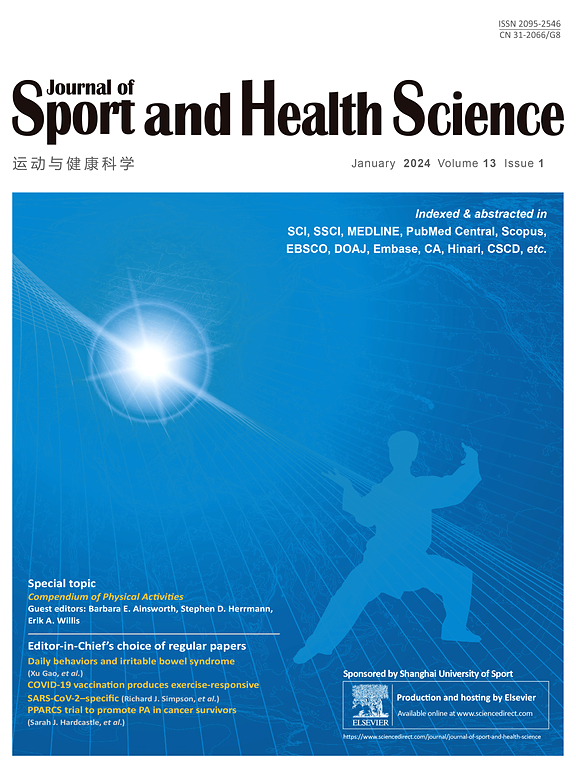人工智能在体育中的伦理含义:一个系统的范围审查。
IF 10.3
1区 医学
Q1 HOSPITALITY, LEISURE, SPORT & TOURISM
引用次数: 0
摘要
尽管越来越多的证据表明在体育运动中使用人工智能(AI)技术,但围绕人工智能使用的伦理问题正在最低限度地进行讨论。因此,这个系统的范围审查旨在总结当前与在体育中使用人工智能相关的伦理影响。方法检索medline /PubMed、Embase、Cochrane Library、ProQuest、EBSCOhost、IEEE Xplore、Web of Science、Scopus、谷歌scholar等9个数据库。在提取数据之前注册了审查方案(https://osf.io/42a8q)。检索结果为397项研究,其中25项研究符合纳入和排除标准。这25项研究被分为4个主要的伦理问题:公平性和偏见、透明度和可解释性、隐私和数据伦理,以及人工智能在体育中的应用的问责制。这些分类是基于对所选研究中突出的伦理问题的系统回顾得出的。15项研究深入探讨了公平和偏见,重点关注人工智能如何使体育领域现有的不平等现象永久化。13项研究解决了缺乏透明度的问题,强调了人工智能驱动决策的可解释性和信任方面的挑战。在22项研究中,隐私和数据伦理显得尤为重要,突显了滥用运动员敏感数据的风险。最后,8项研究考察了问责制,强调了人工智能开发者和用户在体育环境中的道德义务。专题分析揭示了重叠的问题,因为一些研究同时处理多个问题。未来的研究应侧重于开发适合代表性不足的体育环境的道德框架,并为体育领域的人工智能监管制定全球标准。这包括调查人工智能应用在业余体育中的影响,增强人工智能训练数据集的多样性,并探索在各种体育治理结构中整合道德人工智能实践。本文章由计算机程序翻译,如有差异,请以英文原文为准。
Ethical implications of artificial intelligence in sport: A systematic scoping review.
BACKGROUND
Although there is growing evidence of the use of artificial intelligence (AI) techniques in sports, ethical issues surrounding AI use are being discussed at a minimal level. Thus, this systematic scoping review aimed to summarize the current ethical implications associated with using AI in sports.
METHODS
In this study, a total of 9 databases-MEDLINE/PubMed, Embase, Cochrane Library, ProQuest, EBSCOhost, IEEE Xplore, Web of Science, Scopus, and Google Scholar-were searched. The review protocol was registered (https://osf.io/42a8q) before extracting data. The search yielded 397 studies, and 25 studies met the inclusion and exclusion criteria.
RESULTS
THE 25 STUDIES WERE CATEGORIZED INTO 4 PRIMARY ETHICAL CONCERNS: fairness and bias, transparency and explainability, privacy and data ethics, and accountability in AI's application in sports. These categorizations were derived based on the systematic review of ethical issues highlighted across the selected studies. Fifteen studies delved into fairness and bias, focusing on how AI can perpetuate existing inequalities in sports. Thirteen studies addressed the lack of transparency, emphasizing the challenges in interpretability and trust in AI-driven decisions. Privacy and data ethics emerged as significant in 22 studies, highlighting risks related to the misuse of athletes' sensitive data. Finally, accountability was examined in 8 studies, stressing the ethical obligations of AI developers and users in sports contexts. The thematic analysis revealed overlapping concerns, as some studies addressed multiple issues simultaneously.
CONCLUSION
Future research should focus on developing ethical frameworks tailored to underrepresented sports contexts and creating global standards for AI regulation in sports. This includes investigating the implications of AI applications in amateur sports, enhancing diversity in AI training datasets, and exploring the integration of ethical AI practices across various sports governance structures.
求助全文
通过发布文献求助,成功后即可免费获取论文全文。
去求助
来源期刊

Journal of Sport and Health Science
SPORT SCIENCES-
CiteScore
18.30
自引率
1.70%
发文量
101
审稿时长
22 weeks
期刊介绍:
The Journal of Sport and Health Science (JSHS) is an international, multidisciplinary journal that aims to advance the fields of sport, exercise, physical activity, and health sciences. Published by Elsevier B.V. on behalf of Shanghai University of Sport, JSHS is dedicated to promoting original and impactful research, as well as topical reviews, editorials, opinions, and commentary papers.
With a focus on physical and mental health, injury and disease prevention, traditional Chinese exercise, and human performance, JSHS offers a platform for scholars and researchers to share their findings and contribute to the advancement of these fields. Our journal is peer-reviewed, ensuring that all published works meet the highest academic standards.
Supported by a carefully selected international editorial board, JSHS upholds impeccable integrity and provides an efficient publication platform. We invite submissions from scholars and researchers worldwide, and we are committed to disseminating insightful and influential research in the field of sport and health science.
 求助内容:
求助内容: 应助结果提醒方式:
应助结果提醒方式:


